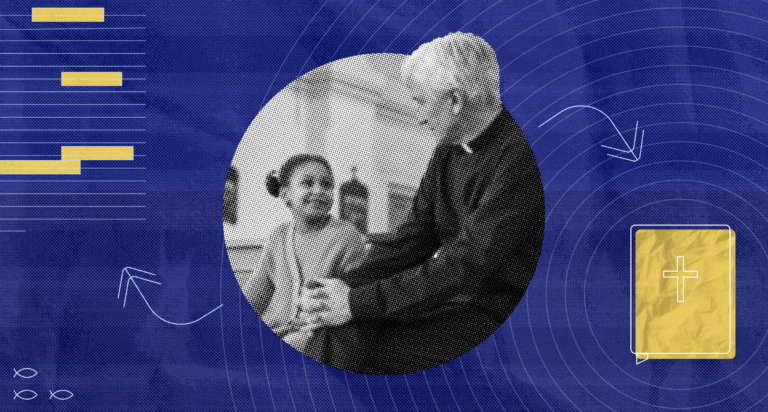Firemen, bomb disposal experts, miners, surgeons—we generally view these as high-stakes, dangerous, or stressful jobs. But the New Testament adds another occupation to the list: teaching. In the letter bearing his name, James offers this warning: Not many of you should become teachers, my brothers, for you know that we who teach will be judged with greater strictness. For we all stumble in many ways. And if anyone does not stumble in what he says, he is a perfect man, able also to bridle his whole body. (3:1–2) In chapter 1, James lists three marks of genuine religion: a caring heart, an uncompromised testimony, and a controlled tongue (v. 26–27). Then, in chapter 3, he devotes a large section (vv. 1–12) to that third mark—namely, taming the tongue—paying particular attention to the task of the teacher in the opening verses. Clearly, James—and the Holy Spirit speaking through him—wanted his readers to understand that they shouldn’t volunteer too quickly to fill that role. James warns against the dangers of teaching because he understands it’s a significant and serious task. Christian teachers are spokespeople for God, bringing divine truth to bear on the lives of their hearers. The role of Christian teacher in the New Testament was like that of the rabbi in Old Testament times. Jewish parents would be delighted if their sons grew up to be rabbis, for with the role came status, influence, and privilege. Yet here, James says one ought to be very careful about assuming these responsibilities. Teachers were especially crucial in the early church. At that time and context, the literacy rate was, at best, shy of 15 percent. There were no written Gospels in people’s hands, no copy of the Bible on a family’s bookshelf at home. So, out of necessity, people relied almost entirely on their teachers to explain for them the essentials of the faith. Importantly, James doesn’t say, “Not any of you should become teachers,” but “Not many…” We need teachers in the church. We need those who’ve been appointed by God, giving God’s people God’s words. But James warns against people clustering at the door to volunteer for it. The responsibility is also a serious one. At a Christian wedding, the minister may say to the people, “Marriage is not to be entered upon lightly or carelessly but thoughtfully, with reverence for God and with due considerations for the purposes for which it was established by God.” What’s true for marriage is true also for teaching in the church: It isn’t to be entered into flippantly. It’s both a wonderful and dreadful task. What, in part, makes teaching so serious is that the tool of the trade—namely, the use of words—opens the door to error, mistakes, and confusion (James 3:2). Anyone who uses dangerous equipment must take great precautions for safety. The same goes for the teacher. He must use great care in how he wields his tool. If teaching is a significant and serious task, then would-be teachers ought to approach it carefully. A few biblical considerations help us to think about the proper approach to teaching. There is an inherent danger in presumption as it relates to the teaching office. Someone might say, “I’d love to be a teacher, going up there and speaking week to week. It seems simple enough, maybe even a bit prestigious.” But we must not do that. It’s good to aspire to teach, but we must do so with a measure of hesitation, knowing the demands that are part and parcel of the task. Through the prophet Isaiah the Lord says, This is the one to whom I will look: The issue is what is happening in the teacher’s secret place, when he is alone before his Bible. How does he view himself there? If all he wants to do is stand up and have people listen to him talk, then he shouldn’t presume to be a Bible teacher. No doubt, teachers should seek great things for God and His people—but never solely for themselves. Teachers, James tells us, will be under the gaze of a more severe judgment. In other words, there is a penalty associated with the teaching office. Maybe James remembered Jesus’ teaching when he penned this warning. Exposing the Pharisees’ hypocrisy, Jesus said, Beware of the scribes, who like to walk around in long robes and like greetings in the marketplaces and have the best seats in the synagogues and the places of honor at feasts, who devour widows’ houses and for a pretense make long prayers. They will receive the greater condemnation. (Mark 12:38–40) Where the Pharisees would receive a “greater condemnation,” Christian teachers will be judged with “greater strictness.” It’s similar language, both instances underscoring the seriousness of the task. Further, we know from other New Testament passages that teachers will be judged not only according to the content of their teaching but also by the conduct of their lives. This is why Paul tells Timothy, “Keep a close watch on yourself and on the teaching” (1 Tim. 4:16). There’s no escaping the sobering reality: To teach is a dangerous thing. Finally, teachers ought to approach the task with honesty, as verse 2 implies: “We all stumble in many ways. And if anyone does not stumble in what he says, he is a perfect man, able also to bridle his whole body” (James 3:2). We all make mistakes in a variety of ways, but none more easily so than in our words. If we can gain control of our tongues, James says, we’ll begin to master our bodies—like a bit in a horse’s mouth or a ship’s rudder (vv. 3–4). Teachers must be honest with themselves and those close to them about their vulnerabilities in this area. In light of James’s warning to would-be teachers, we find ourselves asking with the apostle Paul, “Who is sufficient for these things?” (2 Cor. 2:16). Indeed, to teach is significant and serious work. It’s like being a surgeon with a scalpel: One wrong move could bring catastrophic consequences. The teacher is in the business of caring for eternal souls. His task is to open what is closed, unravel what is knotted, and unfold what is tightly packed. Writing in an earlier generation, Scottish minister Alexander Whyte described the weight associated with teaching as follows: No man living has more woe than I have at myself because of my unadvised and offending words. And, however often I keep silent, and however much I prepare myself before I speak, my feet will sometimes go as far from under me that I suffer from sore falls, and I am an offence to my best and most patient friends. So, with great care we heed the warning: “Not many of you should become teachers, my brothers …. For we all stumble in many ways” (James 3:1–2). And in doing so, we recognize that no teacher stands on his own merit. Our sufficiency is not in ourselves but in our God, who alone calls, equips, and sustains us. We must depend daily on His grace to speak what is true and on His mercy to forgive when we fall short—for apart from Him, we can do nothing (John 15:5). This article was adapted from the sermon “A Warning to Would-Be Teachers” by Alistair Begg.
The Task of Teaching
The Approach to Teaching
A Reasonable Hesitancy
he who is humble and contrite in spirit
and trembles at my word. (66:2)A Severe Penalty
A Necessary Honesty
Who Is Sufficient for These Things?
Copyright © 2025 , Truth For Life. All rights reserved.
Unless otherwise indicated, all Scripture quotations are taken from The ESV® Bible (The Holy Bible, English Standard Version®), copyright © 2001 by Crossway, a publishing ministry of Good News Publishers. Used by permission. All rights reserved.












 English (US) ·
English (US) ·